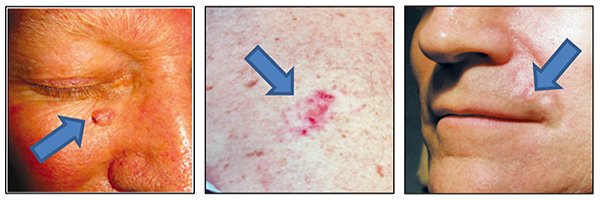
Cancer is due to DNA modifications in a cell, which leads to uncontrolled cell growth. It is why, in the past few years, scientists have been using DNA sequencing of tumors more frequently to discover the genetic mutations responsible for causing cancer. Sergey Nikolaev from the UNIGE Faculty of Medicine focused on Basal Cell Carcinoma (BCC), a type of cancer that is very common in humans. Their goal was to sequence the genome of BCC tumors and compare it with the genetic profile of patients’ healthy cells, to determine the genes responsible for the cancer development. To do this, they studied 293 tumors from a total of 236 patients of all ages.
New cancer genes discovered
«It has been known for quite a while that a vast majority of BCCs are caused by abnormal activation of the
But how could the geneticists from UNIGE identify those new cancer genes? «We have developed a sophisticated statistical analysis software that permits us to localize the cancerous genes among the thousands of somatic mutations in the cancer DNA sequence», answers Sergey Nikolaev. «Once identified, we further tested their role as cancer drivers, for example by looking at molecules with and without mutations and comparing their structure and function», he adds. This was possible through the collaboration with research groups from the School of Medicine at New York University (USA), the department of Biochemistry of the University of Würzburg (Germany) and the department of Oncology of the University of Lausanne (Switzerland).
A personalised treatment for the patient
Each tumor is rather unique because of the various genetic mutations of the genes involved. «We suggest to sequence the healthy DNA and that of the tumor of each patient to really know which genes are responsible for the development of cancer», explains Nikolaev. This precise diagnostics could improve patient care. «Cells respond differently to different ways of treatment because of the mutations of their genes. Some develop a resistance to certain drug substances, which renders the medication effect less. The additional mutations we detected could help in getting the best possible treatment results», adds Antonarakis. Even though still marginally implemented, the sequencing of tumors gradually enters into medical practice, taking into account the genetic particularities of each sick person. «The Genetic Medicine of the University Hospitals of Geneva has all the necessary infrastructure and expertise to spearhead such developments», concludes Antonarakis.
Source: http://www.unige.ch/communication/press-release/2016/CdP040316EN.html


